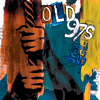|
Artists and Their Churches
Christian rock’s Cash, classic jazz, and the Old 97’s return
Br. Danielson

Brother Is to Son (Secretly Canadian)
There exists in mainstream American Christianity a gaping disparity between artists and their church. One side is composed largely of the DC Talks and Michael W. Smiths of the world, propagandists pushing an agenda through art. The other side is made up of the Damien Jurados and Over the Rhine, musicians who are artists first, people of faith second.
This results in a tremendous disconnect, one in which a vapid, theologically-impotent pile of shit like Left Behind lights up aisles at Barnes and Noble like a Christmas tree, but which also guarantees you’ll never find a copy of The Brothers Karamazov or Les Miserables at the neighborhood Christian bookseller. It’s the same evangelical mindset that will unquestionably vote to reelect George W., at best an incompetent, decision-challenged nitwit, at worst an insipid, warmongering antichrist.
Unlike some Nashville-bred Pharisee, who figures he’ll make more money for every Jesus namedrop, New Jersey’s Br. Danielson (Daniel Smith) comes across like Johnny Cash—sincere. Smith doesn’t quite have the shopworn legitimacy of the late Cash, but he’s having so much fun you won’t even notice.
Smith’s work sounds like a cross between the Carter Family, a knee-high Sunday school choir and an LSD-induced high school marching band. His gospel-folk festival is a madhouse of banjos, bells, jaw harps and pianos. Smith’s impassioned yelping and whirlwind-mad acoustic guitar strumming are equally a source of awe, so much that you might just overlook how much the songs sound alike. A powerhouse ensemble also backs Smith. With five albums already to his credit as ringleader of Danielson Famile, Smith is off and running with this invigorating “debut” album.
—Lloyd Babbit
Dave Brubeck

For All Time (Columbia/Legacy)
Jazz’s most auspicious year was 1959. Miles Davis’ Kind of Blue, jazz’s most popular album, was released. Ornette Coleman proclaimed a new world order with Change of the Century and The Shape of Jazz to Come. John Coltrane and Bill Evans issued their legendary personal statements Giant Steps and Portrait in Jazz, respectively. And the Dave Brubeck Quartet released Time Out, two tunes from which comprised the first million-selling jazz instrumental single.
Bop’s complexities were in their second decade, sonorous hard bop was in its prime, free jazz still in infancy, and no one had yet thought of fusion. In that expansively innovative yet accessible time Brubeck’s college-WASP-appealing quartet released Time Out, a set of oddly metered and often unswinging selections, perhaps best represented by the first cut on that recording, “Blue Rondo a la Turk.” Written in 9/8 meter (can you say “square”?), “Rondo” is more cop show jingle than jazz composition for the first two minutes, until alto saxophonist Paul Desmond’s solo thankfully lays in the cut.
Which is characteristic of all five CDs in the boxed set For All Time, containing Time Out as well as its four sequel experiments in time signature and a handful of bonus tracks from the same period. Brubeck’s piano can be unsubtle and thumping and the compositions awkward, but Desmond consistently sparkles, delivering probability-defying sustained invention on tune after tune, irrespective of underlying pulse. While these recordings represent a historical milestone and the single most well-known body of Brubeck’s work, Desmond’s contribution is timeless and its greatest legacy.
—Jonathan B. Frey
Old 97’s

Drag It Up (New West Records)
It seems like no matter what the Old 97’s do, whether it’s the twang-punk of the early years to the pristine pop of their later work, they do it well. Rhett Miller, one of rock’s finest wordsmiths, has led the group for over a decade, but the band has been absent for three years.
Most of the band married during the hiatus, and Miller released a solo album. Anyone who thought they’d heard the last from the Old 97’s will be giddy with Drag It Up. These new songs reflect the alt-country sound that defined their early work.
Miller shows his knack for piecing together foot stompers like the lead track “Won’t Be Home,” “The New Kid,” and particularly “Friends Forever,” a tune about coming of age. He also does a fine job on slower stuff, especially the stand out “Adelaide.”
Of note on Drag it Up is the inclusion of a couple songs from bassist Murry Hammond and, regrettably, guitarist Ken Bethea’s first addition to an Old 97’s record. After listening to “Coahuila,” it’s obvious why he hasn’t been included in the songwriting before. However, Hammond’s songs are excellent as usual. “Smokers” damn near steals the show.
Drag It Up shatters rumors of the Old 97’s wrecking anytime soon. It’s proof that the 97’s still have it together and are maturing quite gracefully.
—Josh Staunton

August 26, 2004 • Vol. 14, No. 35
© 2004 Metro Pulse
|
|